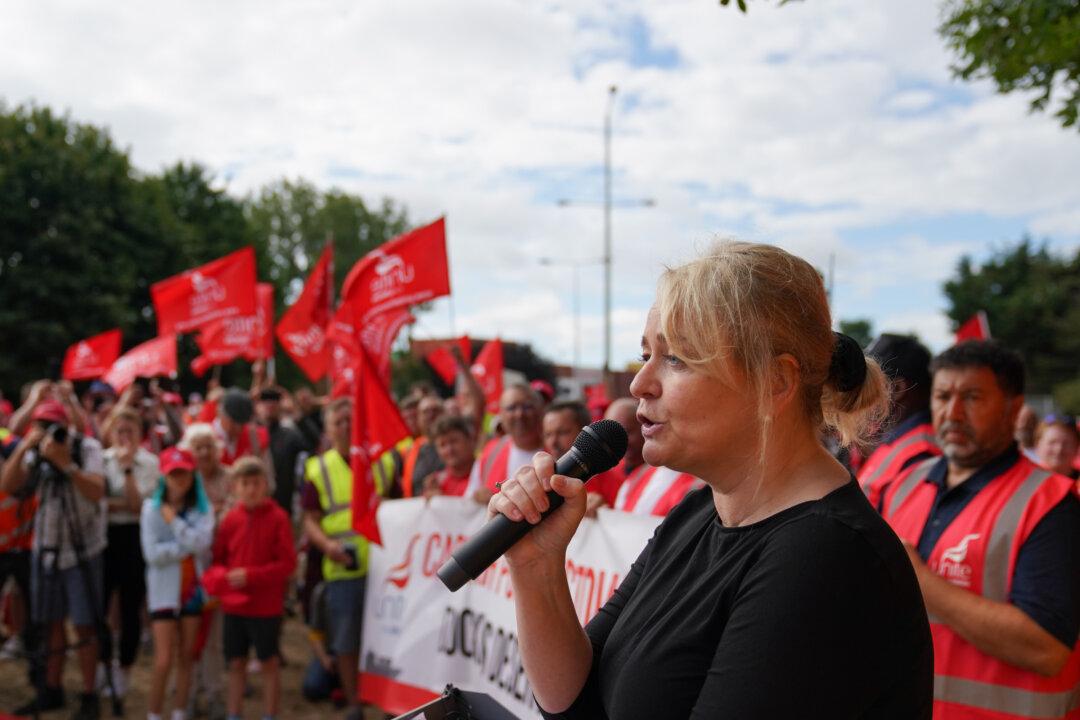The ongoing strike at Britain’s largest container port will escalate unless workers are given an improved pay offer, a trade union boss has said.
Almost 2,000 workers at the Felixstowe port who are members of the Unite union started an eight-day strike on Aug. 21 after the union rejected an offer of a 7 percent raise, as well as a single payment of £500 ($592).





